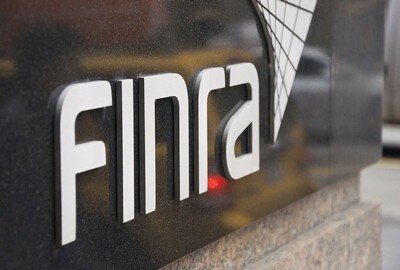
If you’re an investor who has been the victim of fraud or stockbroker misconduct, you may be wondering how to initiate a FINRA arbitration. In this blog post, we’ll provide an overview of the process and what you can expect. We’ll also dispel some common myths about arbitration that might be holding you back from seeking the justice and compensation you deserve. So if you’ve been thinking about filing a claim, read on to learn more about initiating a FINRA arbitration.
You must have a claim against a broker-dealer that is registered with FINRA in order to initiate arbitration
If you have experienced stockbroker or financial advisor negligence in violation of FINRA rules, arbitration may be the right course of action for you. However, one of the eligibility requirements for initiating arbitration is that you must have a claim against a broker-dealer that is registered with FINRA. If your stockbroker or financial advisor isn’t registered with FINRA, then they cannot be brought to arbitration and another avenue is necessary to pursue justice. Knowing who falls under the purview of FINRA can help inform your decision on whether arbitration is the most suitable path forward for you.
How do you know if your broker’s company is registered with FINRA?
Knowing if your broker’s company is registered with FINRA is critical to understanding the rights and responsibilities of both parties in an arbitration proceeding, as FINRA Arbitration is the forum through which disputes between investors and securities firms are handled. You can easily check by visiting FINRA’s BrokerCheck page on its website. This page provides important information about brokers, investment advisors, firms, and other financial professionals that are part of the FINRA membership network. It allows users to research firms’ and brokers’ regulatory histories, licensing status and more. Doing so will give you peace of mind when making investments through your broker.
You must file a Statement of Claim and pay the required filing fee
Individuals who seek to resolve a dispute through the FINRA Arbitration process must begin by filing a Statement of Claim and paying the required fee. Filing a Statement of Claim starts an important process that gives both parties the opportunity to present evidence in support of their respective positions. These documents should be prepared carefully, as they can help set the tone for the outcome of your case and impact any potential recovery. As such, it is paramount to discuss your situation with an attorney or other qualified advisor before filing any documents with FINRA.
Once your claim is filed, FINRA will provide the broker-dealer with a copy and they will have an opportunity to respond
Once your claim is filed, FINRA will provide a copy to the broker-dealer who you have brought the claim against, allowing them an opportunity to provide a response. This is according to the arbitration rules set forth by FINRA, which seek to ensure that all parties involved in the dispute are aware of their rights and responsibilities during the process. A respondent generally has 45 days after receipt of the claim to submit a written response; however, it is important to note that depending on case circumstances and other factors such as holidays, additional time may be granted for both filing and responding. FINRA emphasizes an efficient handling of each and every dispute, so it is in your best interest as a claimant or respondent to be organized and timely at every step in this process.
After both sides have had an opportunity to present their case, an arbitrator will render a decision which is binding on both parties
After both sides have had their turn to provide evidence and make arguments, the arbitrator will deliver a decision. This decision will be final, and all parties must abide by what it states. It is important to note that a review of the decision is not typically available from the forums in which FINRA arbitration takes place. Therefore, it is crucial to ensure that you are well prepared before coming to an arbitration hearing to make sure that you get the outcome that you deserve.
Ultimately, FINRA arbitration is an important tool for settling disputes with a broker-dealer. It can be a complicated procedure but understanding the basics of FINRA arbitration is essential if you would like to initiate a claim against a broker-dealer. You must have a suitable claim to bring before a regulated broker-dealer and understand that this process may take some time until resolution. Both sides will be given an opportunity to present their evidence and the arbitrators will issue a decision that both parties must abide by. Therefore, it is recommended that you are fully aware of the entire process in order to maximize the potential success of your dispute. With this in mind, you should always seek professional legal assistance before initiating any type of legal action so as to ensure that you understand all aspects of your claims and navigate the arbitration process correctly. If you believe you might have a claim, contact us for a free consultation.

Sean M. Sweeney is a shareholder at Halling and Cayo, a full service law firm in Milwaukee, WI and the head of its Securities Litigation team.
He represents individual and institutional investors in FINRA arbitration and court nationwide. He recovers investment losses from fraud or breach of duty from their broker-dealer.
Contact him at (414) 755-5020 or via e-mail at SMS@hallingcayo.com to see if he can help recover your funds.
